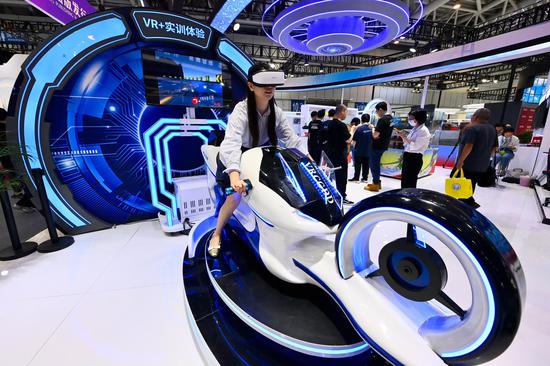Chinese researchers have unveiled a new computer chip inspired by the human brain that they say could revolutionize artificial intelligence applications like self-driving cars and smartphones.
The Tianmoc chip is the brainchild of a team at Tsinghua University's Department of Precision Instruments. Their research, published on Thursday in the journal Nature, details a "dual-pathway complementary brain-like perception chip" designed to mimic how the human visual system processes information.
"This is a fundamental breakthrough for China in both brain-like computing and brain-like perception," said Shi Luping, a professor and co-author of the study.
Tianmoc tackles a key challenge for AI: visual perception in complex environments. Traditional chips often struggle with extreme situations like sudden changes in light or strong interference. Tianmoc, however, is designed to handle these scenarios efficiently, boasting high-speed, high-precision and high dynamic range visual processing at low power consumption.
"This paradigm draws from the fundamental principles of the human visual system," Shi said. "It deconstructs visual information in open environments into representations based on visual primitives. By organically combining these primitives, the model mimics the characteristics of the human visual system, forming two complementary and comprehensive visual perception paths.
"It not only surpasses the performance bottlenecks of traditional paradigms but also efficiently handles various extreme scenarios to ensure system stability and safety."
The chip's potential applications extend beyond self-driving cars and robots. Shi envisions Tianmoc eventually finding its way into everyday devices like smartphones, offering new functionalities once production costs are reduced.
The research builds upon the team's previous work on another brain-inspired chip, Tianjic, which featured on the cover of Nature in 2019. With Tianmoc's addition, researchers believe they are creating a comprehensive "brain-like intelligence ecosystem" that could pave the way for artificial general intelligence, a type of AI capable of mimicking human-like learning and reasoning.
"We are completely following our own technological path, which is original," Shi said. "This could potentially solve many challenging problems, offer new development perspectives and lead to new applications."


















































 京公网安备 11010202009201号
京公网安备 11010202009201号